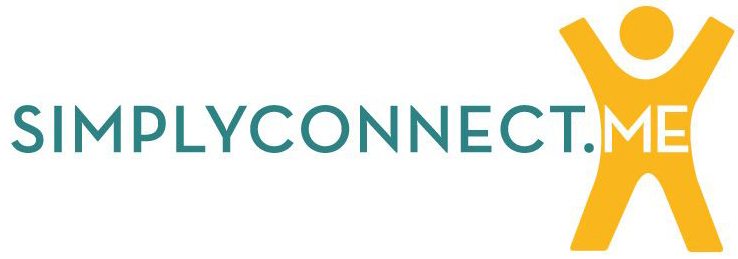Lutheran Services in America Urges Changes to New SNF Initiative
In response to the Biden administration’s recent announcement of an extensive nursing home initiative, Lutheran Services in America wrote to CMS Administrator Chiquita Brooks-LaSure outlining our strong concerns that fewer older adults will be able to access the care that they need. The letter represents the first step of our efforts to ensure that changes to the skilled nursing facility regulatory landscape truly benefit older adults and reflect the reality of the caregiver workforce crisis.
The sweeping initiative includes more than 20 proposed actions, including implementing a minimum staffing requirement, increasing frequency of compliance surveys, and dramatically increasing penalties for deficiencies. No funding is provided for additional staff required by nursing homes. We invite you to join us to share these concerns with both Administrator Brooks-LaSure and your lawmakers. You should feel free to edit the messages before hitting “send” in order to share details of your organization’s story.
Congress Finalizes FY2022 Spending, Hope Renewed for Home- and Community-based Services Funding
On March 11, Congress finalized a $1.5 trillion long-term spending package for the remainder of fiscal year 2022. While lawmakers had hoped to include additional COVID-related funding, last-minute disagreements led to its removal. Democratic leaders hope to pass legislation as soon as next week to authorize the new COVID spending, primarily directed toward further vaccination efforts.
As Congress finished the spending bill, Sen. Joe Manchin (D-WV) renewed hope for Democratic efforts to pass at least a scaled-back version of President Biden’s “Build Back Better” bill. Following weeks of silence on the matter, Manchin publicly outlined new guidelines for a package he could support. Given the Democrats’ one-vote majority in the Senate, Manchin’s support is required for passage of the bill, in which Democrats hope to include $150 billion in expanded home- and community-based services funding.
While the spending deal slowly advanced, other major developments included:
- The response to Russia’s invasion of Ukraine: After initially opposing the idea, President Biden announced plans to ban Russian oil imports following pressure from Congress.
- President Biden signed the Ending Forced Arbitration of Sexual Assault and Sexual Harassment Act, which outlaws the use of forced arbitration clauses for sexual harassment and assault claims.
- President Biden signed an executive order to begin the process of regulating cryptocurrencies, and even consider whether the U.S. should issue a fully virtual version of the dollar.
- Congress passed the bipartisan Postal Reform Act, which could save the agency nearly $50 billion through reform of its employee health benefits requirements.
- After over a century of effort, Congress overwhelmingly passed the Emmitt Till Anti-Lynching Act, which makes lynching a federal crime.
- Three years after its expiration, the bipartisan reauthorization of the Violence Against Women Act was passed after it was included as part of the long-term spending deal.
Administration Announces New Actions to Address the Needs of People with Disabilities and Older Adults in Response to and Recovery from COVID-19
In February, the Biden administration released a new plan and factsheet detailing actions it will take to meet the needs of people with disabilities and older adults in response to the COVID-19 pandemic. The plan outlined steps that will be taken to ensure the healthcare needs of people with disabilities and older adults are not overlooked during the public health crisis. The action plan includes:
- Equipping schools with guidance and support provide safe, in-person instruction;
- Expanding the Department of Health and Human Services (HHS) Administration for Community Living’s Disability Information and Access Line (DIAL) to support people with disabilities who need assistance using at-home tests or in finding alternative tests. The DIAL line is available at 1-888-677-1199;
- Improving COVID-19 testing guidance through updating CDC guidance in American Sign Language and reviewing all existing COVID-19 guidance to ensure accessibility;.
- Developing at-home COVID-19 tests that are accessible to all through a partnership with the National Institutes of Health;
- Distributing masks to individuals with disabilities.
Upcoming Congressional Town Hall Meetings
Members of Congress continue to hold virtual town hall meetings to address constituent concerns about coronavirus relief. Here is a look at upcoming sessions (click links below to find out how to join):
| Member | District | Party | Format | Date & Time | Link |
| Rep. Gregory Meeks | NY-5 | D | Every Tuesday at 5 pm ET | More information | |
| Rep. Marilyn Strickland | WA-10 | D | Telephone | Wed. Mar. 16, 6:30 pm PT | More information |
| Sen. Ron Wyden | OR | D | Virtual (Klamath County) |
Fri. Mar. 18, 12:30 pm PT | More information |
| Sen. Ron Wyden | OR | D | Virtual (Jackson County) |
Fri. Mar. 18, 4:30 pm PT | More information |
| Rep. Ruben Gallego | AZ-7 | D | In person (Maryvale Community Center) |
Sat. Mar. 19, 10 am Arizona time | More information |
| Rep. Ed Perlmutter | CO-7 | D | Telephone | Mon. Mar. 21, 6 pm MT | More information |
| Rep. Ralph Norman | SC-5 | R | Telephone | Tues. Mar. 29, 5:30 pm ET | More information |
| Rep. Cathy McMorris Rodgers | WA-5 | R | Telephone | Wed. April 27, 6 pm PT | More information |
By Sarah Dobson, Senior Director of Public Policy and Advocacy, and Josh Dubensky, Director of Public Policy and Advocacy for the Lutheran Services in America Disability Network












